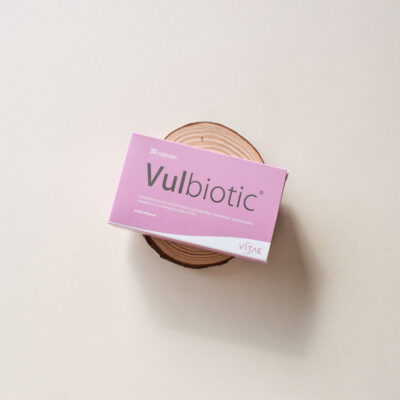Nowadays, you have surely heard about the importance of the pelvic floor. It is a set of muscles and ligaments that surround the abdominal cavity in its lower part. It is responsible for supporting the organs of the bladder, rectum and uterus, which is why it is a very important area in women. In addition, it is an area that is usually affected at key moments in a woman’s life, such as pregnancy, vaginal birth and menopause.
Since it is made up of muscles, it is easy for it to weaken with disuse, which is why it is so important to strengthen it through exercise. That is why toning the area is ideal to avoid problems such as incontinence, prolapses, or even enjoying sexual relations.
Functions of the pelvic floor
- Support function: they support important organs such as the bladder, uterus, urethra, rectum and anus. If there are problems with this function, they can cause a prolapse or descent of any of those organs that should be in one position and would be found more descended.
- Continence function: another function that the pelvic floor has is to contain urine, feces and gases. When there is any weakness of the pelvic floor, some of these functions will be affected. There are usually patients who suffer from constipation due to weakness in the pelvic floor muscles, since there is no stability in defecation.
- Sexual function: the pelvic floor muscles surround structures that intervene in sexual relations and a poor state of this can cause a lack of sensitivity, painful or uncomfortable relations, erection problems or even impossibility of penetration. It is very important to work the pelvic floor well in order to have a comfortable and pleasant sexual life.
- Reproductive function: it happens at the time of childbirth, if you have a pelvic floor in good condition, it will help the second rotation of the baby’s head through the birth canal. It helps the baby to get outside better, therefore, the muscles must have the ability to stretch and be flexible to carry out delivery.
Symptoms of possible weakening of the pelvic floor
The most common symptom that appears when the pelvic floor is not in good condition is the feeling of heaviness or pressure in the vaginal area, as if the uterus, rectum or bladder were coming loose. Below, we tell you more common symptoms:
- Swelling in the vagina, which gets worse throughout the day
- Difficulty starting to urinate
- Frequent urinary tract infections
- Urgent or frequent need to urinate
- Urine leakage when laughing, coughing or exercising
- Constipation
- Pain when urinating
- Loss of fecal matter or difficulty controlling gas
Causes that can weaken the pelvic floor
One of the main causes that weaken the pelvic floor is chronic constipation . That is why it is so important to maintain a good diet, active lifestyle and proper hydration.
On the other hand, hormonal changes also affect the weakening of the pelvic floor, such as pregnancy, childbirth, postpartum and menopause. There is an increase in the pressure of the perineum and its stretching to give birth, which can damage the muscles and ligaments, also causing atrophy and vaginal dryness.
Another cause that weakens the pelvic floor is the practice of high-impact sports , which can cause up to 80% of urinary incontinence.
How we can strengthen the pelvic floor
The ideal is to strengthen the pelvic floor from a very early age and not when we find that we have a related problem and treatment is already necessary. Some of the exercises that are carried out are Kegel or hypopressive exercises . Next, we see what it is about.
Kegel exercises consist of contraction of the pelvic floor muscles . They help strengthen the muscles under the uterus, bladder and large intestine. They can help both men and women who have problems with urine leakage or bowel control.
- Make sure your bladder is empty, sit or lie down
- Tighten your pelvic floor muscles. Hold them down and count to 3-5 seconds
- Relax your muscles and count to 3-5 seconds
- Repeat 10 times, 3 times a day
Hypopressives are a series of postural and breathing techniques that help improve the muscles of the abdomen and pelvic floor. Some examples of hypopressive exercises would be the following:
- Lie with your hands up, above your chest with your palms facing out, as if you were holding a plank. Inhale through your nose, exhale gently through your mouth. When you expel all the air, put your belly in and open your ribs and sides. Try to hold on without taking a breath for about 10 seconds.
- Stand with your body inclined, with your chin slightly inward and bend your knees a little. Place your hands as if you were grabbing the waist, but in front of you. While maintaining this posture, take a breath and then release it little by little until you can’t take it anymore. At that moment, suck the abdomen upward, putting the belly in and holding it for a few seconds without breathing.
All of these exercises can be done individually, but if you are in a more serious situation, it is better to go to a professional so they can guide you better.
At Vitae we care about your health and that is why we try to offer the best of us, providing valuable ideas for your daily life. Next, we bring you one of our proposals for intimate health:
UrinVita is a natural food supplement based on pomegranate extract, grape extract, cranberry and rosemary. Thanks to its content of proanthocyanidins and Procyanidins contribute to the well-being of the urinary system. It is a disruptor of the biofilms that bacteria can create in infections, which adhere to the surfaces of the reproductive system of women. It contributes to an improvement in situations of urinary infections and recurrent urinary infections.
Vulbiotic is an oral synbiotic based on Lactobacillus rhamnosus , Lactobacillus crispatus and Fructooligosaccharides (FOS) that contribute to restoring the vaginal microbiome , favoring the balance of the vaginal microbiota and its role as a natural barrier against genitourinary infections.





